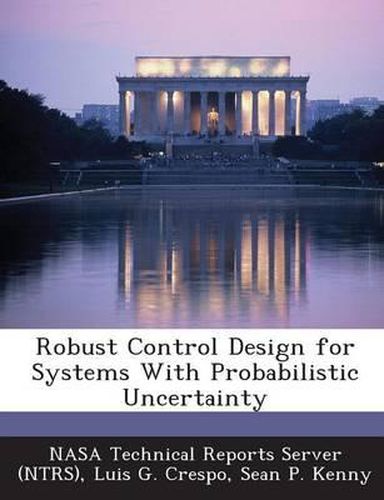Readings Newsletter
Become a Readings Member to make your shopping experience even easier.
Sign in or sign up for free!
You’re not far away from qualifying for FREE standard shipping within Australia
You’ve qualified for FREE standard shipping within Australia
The cart is loading…






This paper presents a reliability- and robustness-based formulation for robust control synthesis for systems with probabilistic uncertainty. In a reliability-based formulation, the probability of violating design requirements prescribed by inequality constraints is minimized. In a robustness-based formulation, a metric which measures the tendency of a random variable/process to cluster close to a target scalar/function is minimized. A multi-objective optimization procedure, which combines stability and performance requirements in time and frequency domains, is used to search for robustly optimal compensators. Some of the fundamental differences between the proposed strategy and conventional robust control methods are: (i) unnecessary conservatism is eliminated since there is not need for convex supports, (ii) the most likely plants are favored during synthesis allowing for probabilistic robust optimality, (iii) the tradeoff between robust stability and robust performance can be explored numerically, (iv) the uncertainty set is closely related to parameters with clear physical meaning, and (v) compensators with improved robust characteristics for a given control structure can be synthesized.
$9.00 standard shipping within Australia
FREE standard shipping within Australia for orders over $100.00
Express & International shipping calculated at checkout
Stock availability can be subject to change without notice. We recommend calling the shop or contacting our online team to check availability of low stock items. Please see our Shopping Online page for more details.
This paper presents a reliability- and robustness-based formulation for robust control synthesis for systems with probabilistic uncertainty. In a reliability-based formulation, the probability of violating design requirements prescribed by inequality constraints is minimized. In a robustness-based formulation, a metric which measures the tendency of a random variable/process to cluster close to a target scalar/function is minimized. A multi-objective optimization procedure, which combines stability and performance requirements in time and frequency domains, is used to search for robustly optimal compensators. Some of the fundamental differences between the proposed strategy and conventional robust control methods are: (i) unnecessary conservatism is eliminated since there is not need for convex supports, (ii) the most likely plants are favored during synthesis allowing for probabilistic robust optimality, (iii) the tradeoff between robust stability and robust performance can be explored numerically, (iv) the uncertainty set is closely related to parameters with clear physical meaning, and (v) compensators with improved robust characteristics for a given control structure can be synthesized.